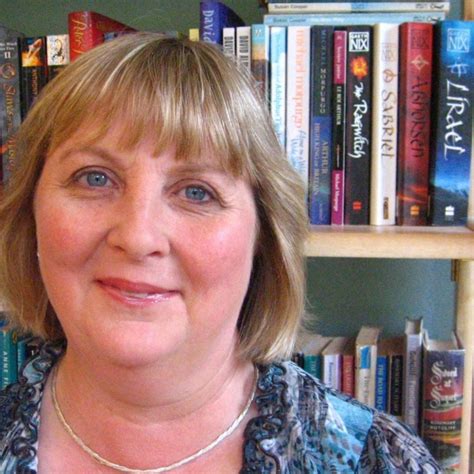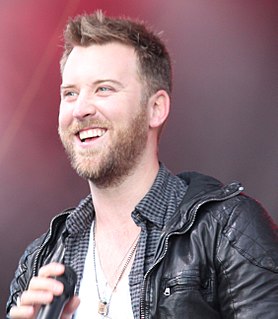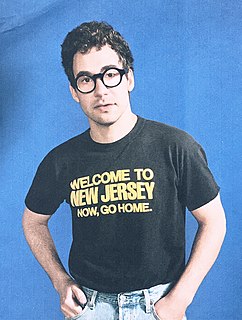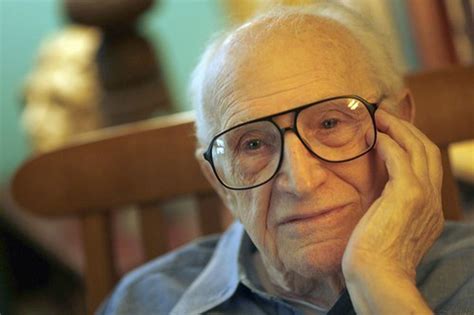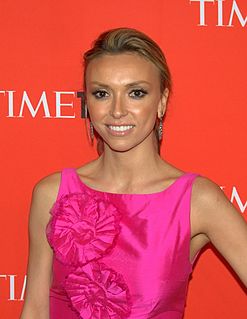A Quote by Brian Hodge
A year after I'd graduated college, I went to a weeklong conference intensive in Boston, and that's when things kicked into high gear. My workshop leader was a Harvard professor and editor. At the end of the week we met one-on-one over breakfast, and she said, in essence, "Look, you're ready to turn pro." She gave me a list of literary agents to query once I had something to show them. I came home and wrote my first real novel, and the agent that sold it to Tor Books was on that list.
Quote Topics
After
Agent
Agents
Books
Boston
Breakfast
Came
College
Conference
Editor
End
Essence
First
Gave
Gear
Graduated
Had
Harvard
High
Home
Intensive
Kicked
Leader
List
Literary
Literary Agents
Look
Me
Met
Novel
Once
Over
Pro
Professor
Ready
Real
Said
She
Show
Sold
Something
Them
Things
Turn
Week
Workshop
Wrote
Year
Related Quotes
On the board was a list of words and phrases which her mother considered not suitable for use in college T-shirt design. She had been asked about them so often that in the end she had started a blacklist of banned words to which everyone could refer. Every time someone thought of a new one, she unflinchingly wrote it down... Rose read through the list, and turned back to her letter. These are the words I learned to spell in Mummy's art class today, she wrote, and sighed a little as she began the tedious job of copying from the board.
If you want to be traditionally published, then you most likely want to get a literary agent. To sign with an agent, you need to send them a query letter, but agents can get up to 20,000 query letters a year. With numbers like that, it helps to get in front of agents with every opportunity you have.
Dave and I had been song writers in Nashville, trying to get around, out hustling, trying to meet people. We randomly met Hillary out in town one night. She said she was a singer. I asked her if she would like to write some songs with Dave and me, and a week later she came over. Instantaneously we had this chemistry.
I put my name on that Occupy Musicians list because someone wrote to me and said, "Would you do this?" I said, "Yeah sure, I support this." What artist wouldn't support that? What's the big deal? But then people wrote to me, "Wow! You're on that list!" And I'm like, "Who isn't on that list?" That would be more shocking.
I first met Taylor Swift at an awards show, which is a pretty easy place to suss out who is cool. Right off the bat I was like, This is a person I want to know. Just because she's a very famous person doesn't mean she doesn't exist outside of that space. She's wonderful and special and treats me really nicely and we have a great, mature relationship. She's on a short list of people like that for me.
She wrote poetry constantly; that was her "work". She was a slow bleeder and she slaved over it for long, exhausting hours, and many a middle of a night I could hear her creaking around the dead house with a pen in one hand, a clipboard and a flashlight in the other, refining her poems, jotting down the lines of a conceit. Writing never came easy for her; it gave her calluses. She never courted the muses, she wrestled them, mauled them all over the house and came up, after weeks of peripatetic labor, with a slim Spencerian sonnet, fourteen lines of imagistic jabberwocky.
It wasn't exactly a cattle call. I had an agent, and they were seeing people for the parts, so my agent said, "Here's the script, see if there's anything that speaks to you." And I did, and I called my agent and said, "I think this character Data is kind of interesting," and she said, "Well, okay, I'll get you the appointment with Junie Lowry." I had to read with the casting agent first, 'cause nobody really knew me then. Then after that, I had, I think, six different auditions for the role. And finally it was me [on Star Trek].


